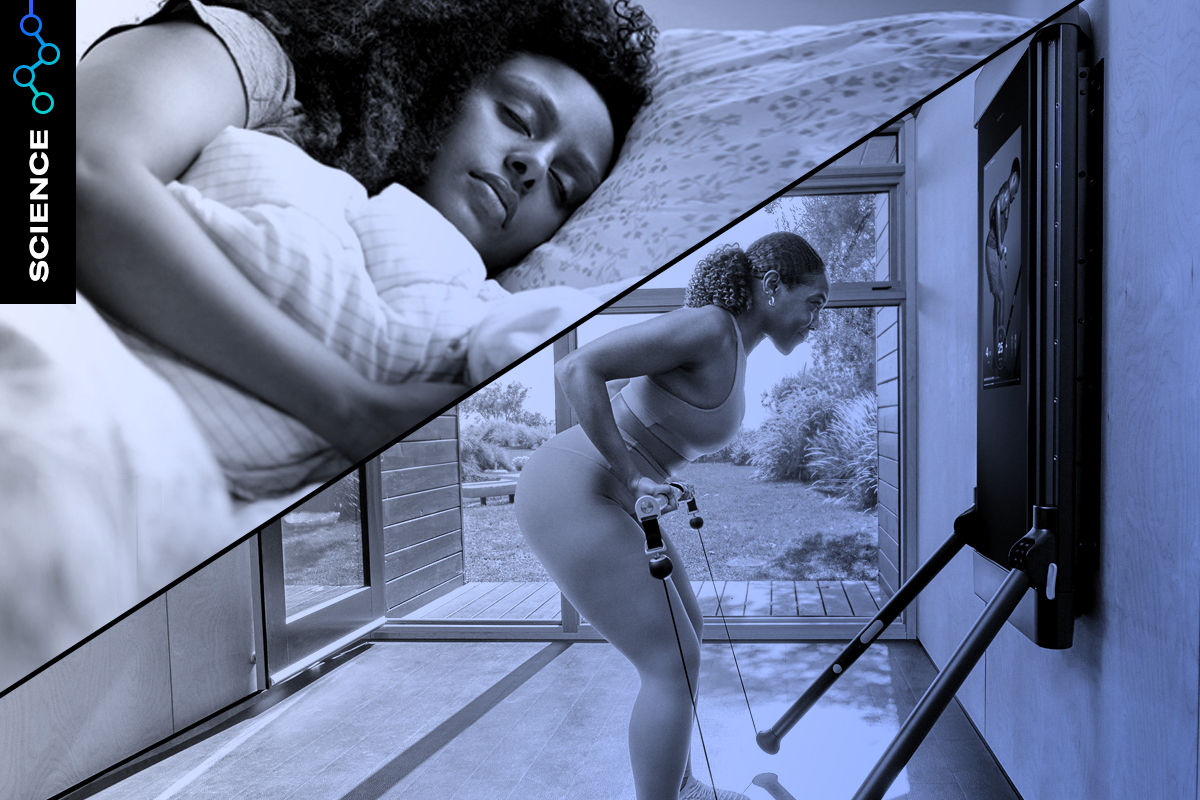At any intensity, your go-to form of exercise might be the key to getting better sleep and improving recovery.

- A recent study found that moderate- and high-intensity resistance training improves sleep quality, recovery, and performance.
- This is not the first study to suggest resistance training can be a boon for sleep. The finding is supported by a large study surveying over 23,000 adults and within different populations.
- Experts link the bidirectional relationship of sleep and resistance training to improved mood and recovery.

Resistance training can earn you major gains in strength, power, muscle mass, and performance, but here’s one more benefit to add to that list: better Zzzs. According to a recent study, it doesn’t matter how hard your workout session is, strength training can improve the quality of your sleep.
In this study, published in Biology of Sport, 15 male athletes performed two resistance training sessions: one to failure and the other to non-failure. Participants tracked their sleep quality and heart rate variability (HRV), a measure of nervous system recovery, after each session and performed a one-rep max (1RM) test the following day. Results showed both groups improved sleep quality, strength on 1RM, and HRV recovery equally.
The findings suggest that you can get sleep and recovery benefits from a small dose of resistance training, and you don’t have to worry that a higher intensity workout will disrupt sleep. These improvements may be attributed to improvements in mood, depression, and anxiety.
When sleep quality is suffering, athletes often feel angry, confused, tense, fatigued, and even depressed compared to when they are in a well-rested state, explained Louisa Nicola, neurophysiologist and Tonal advisory board member. “I think we can all relate to our overall mood being poorer when our sleep quality or quantity is reduced, and these negative feelings can perpetuate the poor sleep patterns,” Nicola said.
It’s a virtuous cycle: The better you sleep, the more energy you have for training, and the harder you train, the better you sleep. But the effect of sleep on training goes beyond feeling energized. High-quality sleep is essential for muscle recovery. (There are even foods that can help with sleep on top of muscle repair.)
Sleep can help regulate anabolic hormones responsible for muscle growth and development such as testosterone and human growth hormone, Nicola added. One review saw a decrease in these anabolic hormones after prolonged sleep deprivation.
“Anabolic hormone levels follow a circadian rhythm, and if we are chronically limiting sleep,” Nicola noted, “it may inhibit maximal strength performance, volume load of the training sessions, and increase risk of muscle loss.”

Although this study used a small sample of young men, it demonstrated that sleep quality improved with resistance training regardless of intensity. And there is more evidence to back this up: Studies on older adults, women, and adults with obesity and sleep-related breathing disorders such as sleep apnea, have also shown that resistance training improved sleep quality.
In addition, research published in Prevention Medicine Reports further backed up these findings in a large study that assessed resistance training and sleep quality in over 23,000 adults. Researchers found that any degree of resistance training resulted in better sleep quality, and those participants who had the worst sleep rating when the study began made the biggest sleep gains once they started training.
“The positive benefits of aerobic exercise on sleep quality have been known for a long time, but emerging evidence in the past few years shows that resistance training also has significant benefits for sleep,” said Troy Taylor, Senior Director of Tonal Strength Institute. “This is particularly true in people with the lowest quality sleep, so if you want to improve your sleep, make sure strength training is a mainstay in your program.”